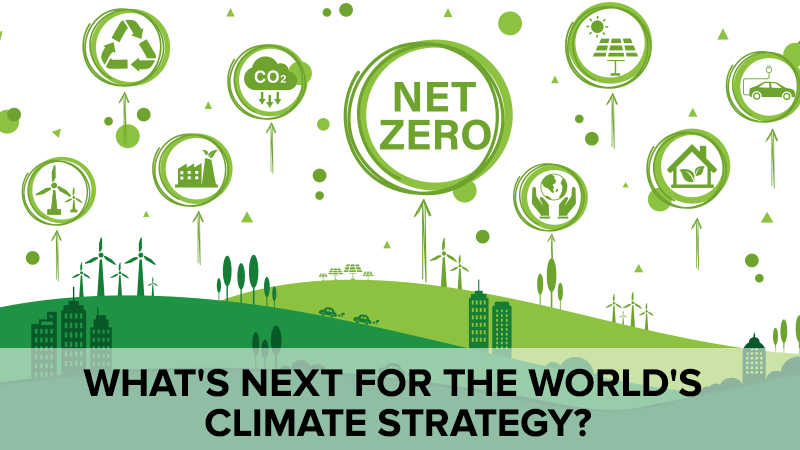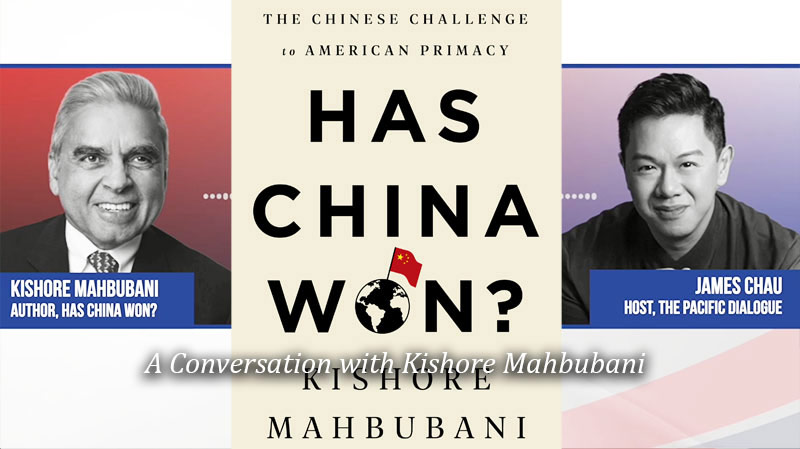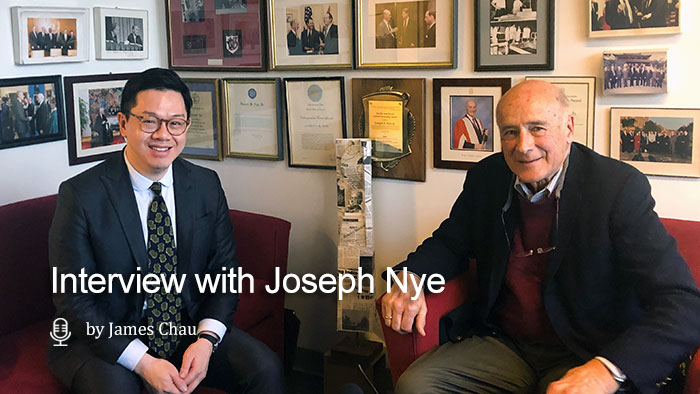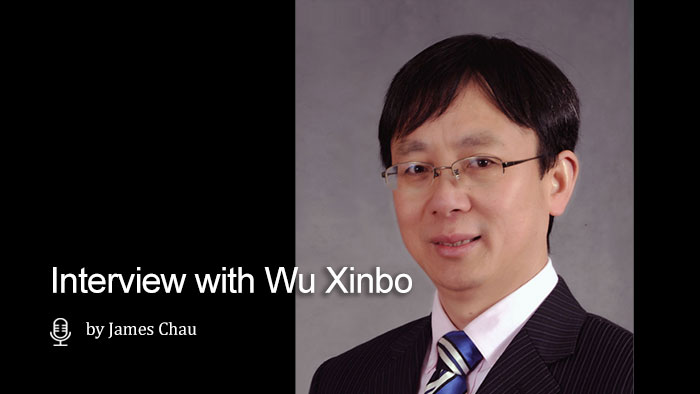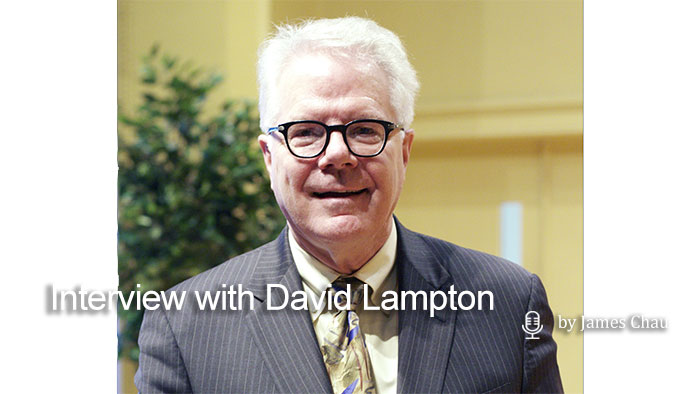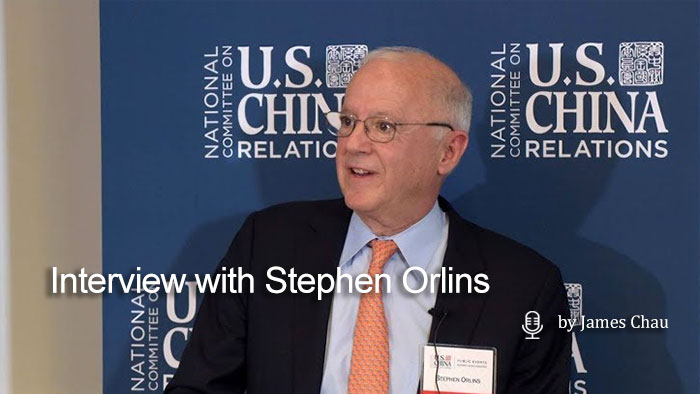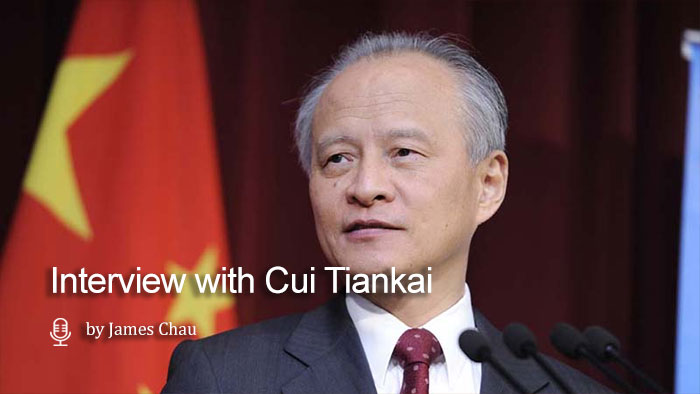"I feel very sad": leading US-China scholar speaks out on visa restrictions
James Chau, host of At Large, the in-house podcast of China-US Focus, interviewed Peking University Professor Wang Jisi in Hong Kong, during which the prominent Chinese scholar of American studies discussed the recent media reports of FBI barring some Chinese scholars from visiting the U.S. over spying fears, the rise of racial profiling in the U.S. and racial discrimination across the world. Professor Wang also discussed the growing U.S.-China rivalry, the concerns that China is moving backward, and his optimism that China is ultimately moving in the right direction. The following is a transcript of the interview.
JAMES CHAU: It's a great pleasure for me to be sitting with Professor Wang Jisi, who is a professor in the School of International Studies and President of the Institute of International Strategic Studies at Peking University. He was, of course, the Dean of the School of International Studies prior to that, and he's held a number of visiting fellow or visiting professorships at Oxford, at UC Berkeley, at the University of Michigan, at Claremont McKenna. And we're delighted that you can be with us here today because you're going to lend your insight both as a thinker, but also as a mover, as the China-United States relationship continues to take on new forms and new shapes.
Professor Wang, let's start off with talking about what everybody is talking about. Just to time-stamp this conversation: it is April 16th, 2019. Two days ago, there was a news that came out in the New York Times about the FBI barring some Chinese scholars from visiting United States over spying fears. This is part and parcel of a growing perception, that somehow Chinese academics, and the millions of Chinese students who have gone to the United States over the years since Deng Xiaoping and Jimmy Carter opened up that exchange, are a threat to security in America. Is that true or not?
PROFESSOR WANG JISI: Of course not. I think the exchanges between Chinese American scholars and students is a great contribution to the bilateral relationship and we, in China, scholars and students, have benefited a great deal from the exchanges and we’ve also contributed towards the understanding between United States and China. So I think when I heard about the story, I didn't hear simply from the press. I got to know that quite a few months ago. So I feel very sad about all of this and I think it is quite unfortunate that the FBI is harassing some Chinese scholars. Personally, I have not been affected. But when I travelled to United States, people ask, "do you have a visa problem? Are you going to be interviewed by the FBI? Or are you going to use your visa going to be cancelled? This is a tough question because some of my fellow students and some of my colleagues have been in this situation several times, so I think that could be addressed properly between the two governments. I think that we in China should work harder for the mutual understanding between the two peoples.
JC: I want to go more into the emotions of it because we're not just talking about a relationship, we're talking about millions of people and you amongst them within that mix. As I mentioned before, you've held roles within some great American institutions and also you spent nine months at the Woodrow Wilson School as part of your four years there as a Global Scholar. Obviously, it's not just about work, it's about personal friendships, intimate friendships as well. How does it make you feel when people talk about your community of academia, and say that you're not contributing? In fact, you are a threat to them?
PW: This episode has happened, when the U.S.-China relationship has been deteriorating for some time, so it's connected to the larger political climate in the bilateral relationship. But it is not simply that. I think the United States is seeing China as a threat or as a rival and we scholars have actually been contributing to the bilateral relationship. And we are not threats to the United States. If you see China as a threat, it will become a threat because it hardens not only the American attitude toward China, but it could backfire in the Chinese scholarly community.
So, many people ask ourselves and ask Americans what is going to happen if our friendship, our good feelings about the United States are being hurt by these incidents? I think that is important, but also necessary: we are not a threat. When you see China as a threat, the you know, the people in China are actually friendly to the United States, and China as a nation-state - I don't think it is a strategic threat to the United States. If we were having problems toward each other in our bilateral relations, like trade or security problems, we can sit down and talk about it.
Some of us are suspected by the Americans as serving the interests of our nation's intelligence community. They suspect that we are working for the intelligence community. But this is very normal that scholars like us have connections with our governments. I have also connections with American government. I talk to American government officials very often, of course, and I talk to Chinese officials very often. We brief them about bilateral relations, we make suggestions as to how we improve relations. We don't give them this proposal that we will do harm to the United States, and of course we don't want to do anything harmful to China.
JC: This is very interesting, because on the one hand, you could see it as a movement towards a "nation-state" as you described it, but the Committee of 100, which many people know is a collection of some of the most prestigious and influential Chinese-Americans in the United States - all them United States citizens, put out a statement the other day, they said that they're compelled to stand up and speak against what they call the racial profiling that's becoming increasingly common in the United States, where Chinese-Americans
are being targeted as "potential traitors, spies and agents of foreign influence". They call that statement "racial profiling". So are we looking at a movement against China as a country, but in addition to that, racism against an ethnic group?
PW: I think that is a phenomenon quite common in the world today. In a world of turbulence, in a world of division along ethnic, religious and racial lines, there are people who suspect that other races are harmful and not as intelligent as themselves. And that is not simply happening in United States. It happens in Europe, in some Asian societies, everywhere in the world, so we should guard against racism and ethnic discrimination. I think the case of the Committee of 100 is just a reflection. So, it is not simply a problem for Chinese communities in the United States, but I think it's also a problem with some other Americans of different ethnic backgrounds and different origins. I think we should not only
resist the call of racism in the United States, but we should also do that in the world at large.
JC: It is somewhat ironic that this statement, the phenomena you described comes at an exact point where the Chinese-American community, and Chinese everywhere, are marking the 150 years since the building of the First Transcontinental Railroad, which helped connect people in America, which helped them move. But of course, was very sad chapter for many of the people and families involved because of the element of human suffering: It wasn't just about going to America to get a job. It was about improving lives, but it was also a very painful sacrifice for many people.
PW: Yes, I think you refer to this kind of history, and we in China will remember very clearly those episodes of the relationship. When many Chinese came to United States, especially from Guangdong, Fujian and other coastal provinces, they worked very hard. They earned very little.
And at the same time, we should remember that they were Americans going to China. Many of them contributed to China's modernization. So we should remember those people, rather than to say that they did anything bad for the United States or for China.
JC: We could talk more about the Exclusion Act, which was a piece of legislation that banned the entry of an entire ethnic group - the Chinese - in the later part of the 19th century. But let's move on. By moving on, I would like to take you back to an essay you wrote in 2005. So, 14 years ago, and I was reading it because I thought on the Foreign Affairs website that it brought up so many points that could easily be reapplied 14 years later in 2019. You wrote that "the United States is currently the only country with the capacity and the ambition to exercise global primacy, and it will remain so for a long time to come". Do you stand by that today - does the U.S. occupy that position as the "lonely superpower"?
PW: I think the relative power of the United States is declining, in the sense that China's catching up some other countries like India are also rising up very rapidly. But I still insist that China and the United States are two rising powers. China is rising faster than the United States. but there is still a long way for China's to catch up with the United States - economically, militarily and in terms of soft power. I emphasize the importance of soft power because I think the soft power of the United States has been shrinking in the last few years, and China's soft power is rising up as compared to the past. But in terms of what we call comprehensive national power, China is lacking still very far behind the United States. For instance, in scientific research, in technological know-how, in management skills, in higher education and high school education, we are lagging behind.
JC: I interviewed Professor Joseph Nye at Harvard University two weeks ago, and we talked very much about collaborative competition, about smart competition. It appears to be a new line of thinking in terms of how to create an innovative solution to get the China-United States relationship moving again. But in fact, you wrote about this a long time ago: you said "a cooperative partnership with Washington is a primary importance to Beijing with economic prosperity and social stability are now top concerns". We should remember that economic prosperity and social stability continue to be top concerns in a country where about 50 million people are still living in extreme poverty. Those goals haven't really shifted in that time. As you said, the relative gains in terms of China as an improving, progressive nation has obviously gone forward. But cooperative partnership - what did you predict 14 years ago? You brought it up a long time ago.
PW: China and the United States cooperated, engaged with each other, and also worked together to solve problems like climate change. The competitiveness at the time was not as intensified as it is today, because China is catching up economically. China is getting rich, much richer than 14 years ago, total GDP of Chinese is about two thirds of the United States today. So that is a very significant change. But I think the fundamentals remain the same. When we talk about educational and scientific levels of analyses - in that regard, China is catching up. But we should remain very modest and sober-minded, as to what we should do at home.
So I think the competitiveness in the United States-China relationship has been more evident, more apparent, than 14 years ago and this is something very new. But I agree with Joe Nye when he emphasized that China and the United States are still working together and we should avoid over emphasizing China's rise of power and America’s relative decline - and I joined him in many discussions and we are of about the same opinion. On the one hand, the Chinese are proud of themselves for good reasons. On the other hand, we should also realize that as compared to our past, we are catching up but when we compare with some advanced economies, like Japan and the United States. We should still learn from their experiences, we should caution against too much pride on our side.
JC: We've been doing a number of interviews since the start of the year to honor the first 40 years of the China-U.S. relationship, and as part of that, of course, the 40 years of reform and opening-up. When you think back for decades ago, I think of the archival footage of Deng Xiaoping going to the United States, over at the Space Center, on the White House South Lawn. There was a very warm relationship, personal relationship between him and Jimmy Carter. They created these wonderful frameworks for the two countries: it's not just about two government is about millions of people bringing the best of the world together, and merging their talents. What's gone wrong?
PW: It is two-fold. That is not something “going wrong", but something different from the Deng Xiaoping years and 40 years ago. The first thing is China's rising up, China is more powerful, more capable. The second point is also very important: that is China's domestic changes, and America's domestic changes. The United States is facing mounting pressure from problems like economic inequality, the rise of populism, and political polarization. You talk about many things that are different today from the Carter years.
On the Chinese side, we have also experienced many events. Of course, we are catching up economically, but we have daunting, mounting pressures at home. For example, environmental degradation, ageing is another problem, poverty relief is still a daunting task. So, there are many problems at home. We are making progress economically. but we should also think of our own problems like economic inequality. Populism is also rising in China, nationalism is rising in China. There are multiple problems that are different from 40 years ago.
One thing happening is that the Americans have lost their patience. When they thought about China 40 years ago, or 30 years ago, they thought that China would become more like the United States - achieving democratic, political pluralism, more diverse views, and a rising middle class that will change the political system of China. Their hopes are dashed and shattered. Some of them are complaining, complaining about themselves. Some are complaining about China going back to the old days - a reference to the Mao Zedong years, not the Deng Xiaoping years. Some people complain that some of the policies are driving China back to the old days. I'm not so pessimistic. I think there will be twists in history, ups and downs in the bilateral relationship, but we should remain optimistic that China is changing - and China is changing ultimately in the right direction.
JC: It is great speaking, hearing and reading what you have to say. Professor Wang Jisi, thank you very much.
